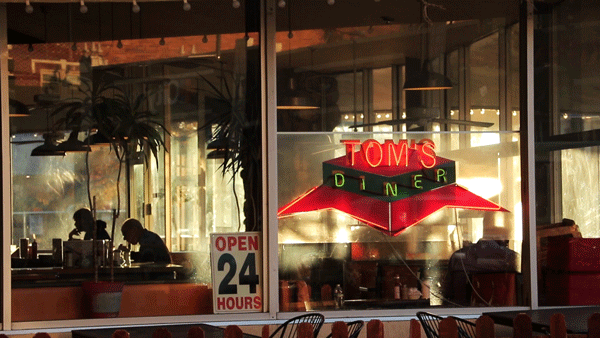A group of Denverites took 24-7 omelets into their own hands Friday when they applied with the city to make Tom's Diner an official historic building.
If the Landmark Preservation Commission and the Denver City Council grant the historic status, it would make selling the property for demolition and development much harder. Owner Tom Messina wants to sell the lot to Alberta Development, which would build eight stories worth of homes, according to BusinessDen, which broke the story.
The property and the retro 1967 building is listed for $4.8 million. Messina originally paid $800,000 for it, according to city records.
Tom's is an example of "Googie" architecture, which Historic Denver Executive Director Annie Levinsky says "made modernism feel playful and accessible to the populace." Her nonprofit helped residents apply for the designation.
Levinsky said the stone specimen is so rare, in fact, that it qualified for the National Register of Historic Places in 2008. That registry requires the owner's permission, so it never got a plaque. A city designation does not require Messina's blessing.
Residents intervening in private property deals on the grounds of history is rare, but not unheard of, according to Alexandra Foster, a spokeswoman for the city's planning department.
"It's not super duper common," Foster said. "I've been working for the city for five-and-a-half years and I remember two applications like this."
One "hostile designation" battle, as the Denver Post put it, played out in West Highland in 2014. The City Council sided with the petitioners and against the property owner. In 2016, the council sided with the homeowner of a Jefferson Park house and against City Councilman Rafael Espinoza's bid. The Tavern Uptown saw a bit of a compromise.
"It's a balance of property rights versus the thing that they're maintaining is historic," Foster said.
According to city records, Messina applied for the opposite of a historic designation -- "non-historic status" -- on May 3 to protect his investment. Friday's application pauses that process. Now the Landmark Preservation Commission will research the diner's significance to the city's architectural pedigree. The commission will likely take up the matter in July.
If the city deems the property historic, Messina can still sell it. In other words: The building may stay but the breakfast burritos may not.












